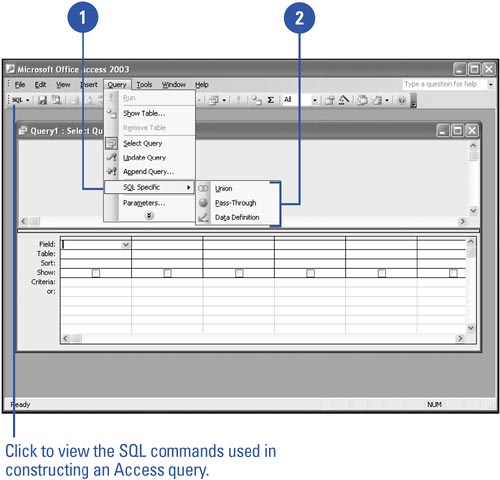Creating SQL-Specific Queries
SQL (Structured Query Language) is a powerful database language used in querying, updating, and managing relational databases. For each query, Access automatically creates an equivalent SQL statement. If you know SQL, you can edit this statement, or write an entirely new one, to create new, more powerful queries. Access supports three kinds of SQL-specific queries: union, pass-through, and data-definition. Each of these query types fulfills a different need.
Create a SQL-Specific Query
 | In Query Design view, click the Query menu, and then point to SQL Specific. |
 | Click Union, Pass-Through, or Data Definition. |
 | Enter SQL commands to create the query. |
 | Save and view the query. |

|
You can view a query in SQL.
To see what your query looks like in SQL, click the View button and then click SQL View. |
|
Union | A query that combines related fields from multiple tables into one field, thus combining the data from several tables. | Pass-Through | A query that sends SQL commands directly to an SQL database server. This allows you to work with tables on the server instead of linking the tables to your Access database. | Data Definition | A query that deletes an index, or creates, alters, or deletes a table. |
|
|